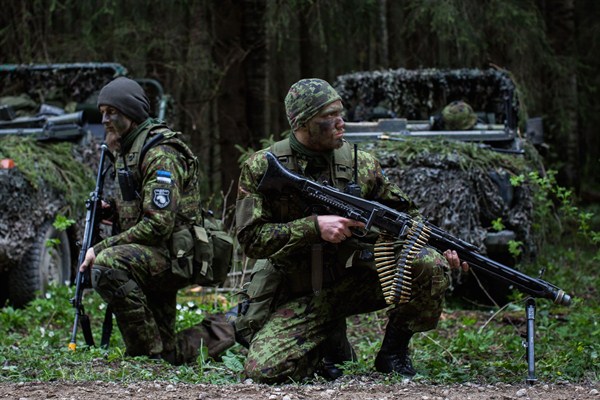Over the weekend, The New York Times reported that the United States is seriously considering stationing hundreds of American troops, along with heavy weaponry, in the three Baltic states—Estonia, Latvia and Lithuania. The Baltics, all of which are former Soviet republics bordering Russia as well as members of the European Union and NATO, have found themselves in an increasingly vulnerable position since Russia began intervening militarily in Ukraine last year. All three are home to large Russian-speaking minorities, whose controversial status could serve as justification for a Russian attack. In recent months, NATO and Russia have been staging military drills in and around the Baltics, and the risk of an incident that could set off a wider crisis is far from remote.
But even as the U.S. demonstrates its commitment to its Baltic allies, there is a disturbing degree of uncertainty surrounding what would happen if such an incident were to occur. Last week, the Pew Research Center released new polling data on attitudes in NATO member states toward Russia, the Ukraine crisis and related issues. Among the most noteworthy findings: the lack of majority support in several key member states for defending a fellow member in the event of a Russian attack, as theoretically guaranteed by Article 5 of the North Atlantic Treaty. To the question “If Russia got into a serious military conflict with one of its neighboring countries that is our NATO ally, do you think our country should or should not use military force to defend that country?” 53 percent of French respondents, 51 percent of Italian respondents and 58 percent of German respondents said no. In the United Kingdom, Poland and Spain, support was under 50 percent, while majorities of Americans and Canadians polled responded in the affirmative.
Standing up to Russia is still seen as a political winner in the U.S. During his trip to Europe last week, Republican presidential candidate Jeb Bush referred to Russian President Vladimir Putin as “a bully” and called for a “more robust” U.S. troop presence in the Baltics and Poland, which is also in talks with Washington about potentially hosting U.S. troops and arms.

